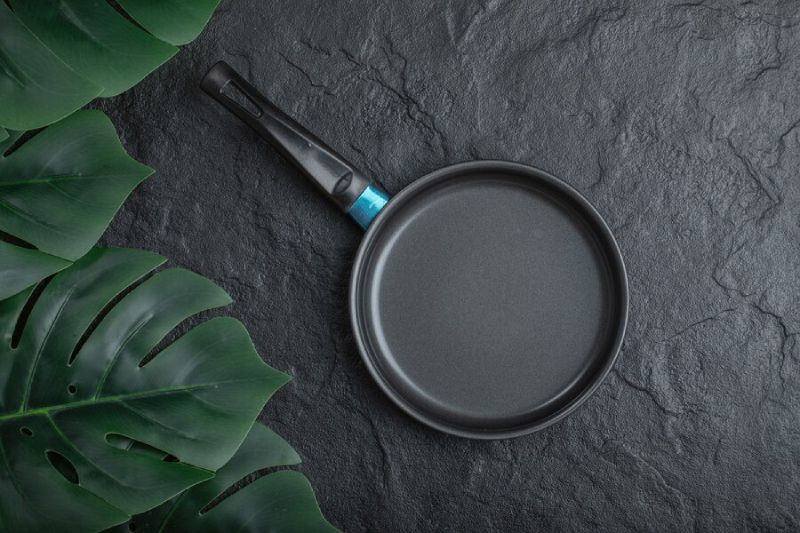Unlike many nonstick pans, ceramic is free from toxic PTFE and PFOA. It is also safe for use with metal utensils and oven-safe.
Ceramic cookware works best over low to medium heat. It is also perfect for making soups, simmering sauces and searing a steak. It also doesn’t react with acidic foods, so that it won’t contaminate your food.
Nonstick Surface
Ceramic pans have a natural, nonstick surface that allows them to cook without extra oil or butter. They can be used to cook many different kinds of foods, including sauteing, stir-frying, simmering and searing. Using low heat and not overcrowding the pans helps prevent food from sticking. Metal cooking utensils are not recommended for ceramic nonstick pans because they can scratch the coating. Instead, use plastic or wood cooking utensils, which are safer and easier on the pans.
Always rinse ceramic nonstick pans with warm, soapy water after each use. Cold water can damage the coating. Never put a ceramic nonstick pan in the dishwasher, which can cause the coating to peel. Storing your ceramic nonstick pans in a well-ventilated area and not on or near an open flame is also a good idea.
Durability
While many ceramic nonstick pans are labeled as dishwasher safe, this type of cookware is best hand-washed to maintain the integrity of the nonstick surface. The harsh scrubbing and cleaning detergents in most dishwashers can damage the sensitive coating, causing it to break down. This, in turn, makes food stick to the cooking surface and can cause a buildup of gunky film.
It’s important also to avoid using sharp metal utensils, as these can scratch the delicate nonstick surface. This, in turn, can lead to the loss of the nonstick property and eventually lead to rust or discoloration.
Finally, let the ceramic pans fully cool before cleaning or wiping down the cooking surface. Doing so will prevent the scalding of your hands.
Easy to Clean
Most ceramic nonstick pans are dishwasher safe, but they can also be hand-washed to extend the life of the coating. Avoid using abrasive cleaning detergents as these may damage the surface and cause it to peel over time, reducing its nonstick properties.
You should also never use metal utensils on your ceramic cookware, as these can scratch the coating and shorten its lifespan. If you need to, opt for a wooden or silicon utensil instead of one with sharp or rough edges that can nick the coating.
To tackle stubborn food residue or stains, simmer a solution of salt and water in your pan to loosen the remaining gunk before wiping it away. You can also soak your ceramic pan in warm, soapy water for 30 minutes before dipping a sponge into dry baking soda and scrubbing it clean.
Convenience
Many ceramic pans can be used from stove to oven, which is great for braised meat dishes and baked eggs. They also have various cooking temperatures, ideal for boiling, simmering and steaming.
Avoid using metal spoons and spatulas on your ceramic cookware, as they can nick or scratch the coating. Instead, use wooden, silicone or rubber utensils.
It’s also important not to get your ceramic pans from the heat straight into cold water, as the sudden temperature change can crack and damage the nonstick coating layer. Always let your ceramic pan cool completely before rinsing to extend its life. Also, if you stack your ceramic pans, put them between polyester pot protectors or cloth napkins to prevent them from scratching or banging each other, which can shorten their lifespan.
Eco-Friendly
Ceramic pans are excellent conductors of heat and can be used to cook a wide range of foods. They can also help you save energy or fuel because they heat up more slowly than traditional pans. However, avoiding exposing your ceramic pans to sudden heat changes is important, as this can degrade the coating and cause excessive sticking. Always wash your ceramic cookware by hand using warm, soapy water. Alternatively, you can use a non-metal scouring powder or non-scratch nylon pad to remove any stuck-on food particles. Never put ceramic pans into the dishwasher, which can damage or peel the delicate coating. Also, avoid using metal utensils as they can scratch or chip the surface of the ceramic cooking pans. Instead, stick with silicone or rubber spatulas and spoons.
